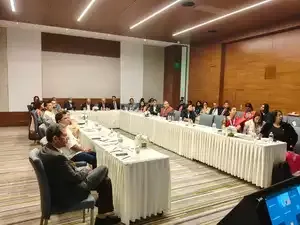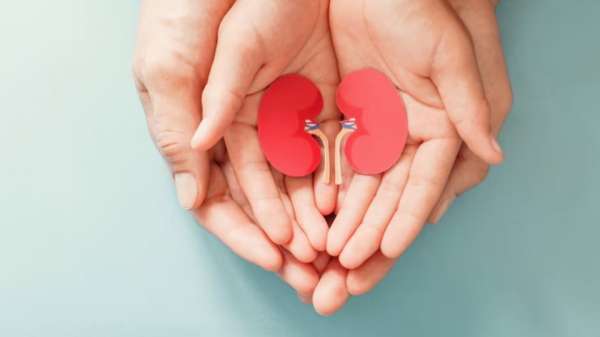Around 1.4 million cases of cancer are detected in India annually, of which 50 to 60 per cent are preventable through lifestyle changes, awareness and vaccination, oncologists said on Friday.
"We have an average of about 1.4 million new cancer patients being diagnosed every year. But 50-60 per cent of those can be prevented through government policies that bans tobacco, betel nut or areca nut, awareness and education of both clinicians as well as people for early detection, and mandatory vaccine for cervical cancer," Apollo Hospitals president of group Oncology and International Dinesh Madhavan told reporters at the 7th edition of the Apollo Cancer Conclave.
Cancer care must be approached as part of a broader ecosystem that will help in early detection and timely intervention, he added.
Giving further insight, director of the International Agency for Research on Cancer (IARC), part of the World Health Organization (WHO), Elisabete Weiderpass, said the cancer burden in India is expected to rise from 1.4 million new cases in 2022 to 2.69 million in 2050.
At present, the top cancer types detected among men in India are lip and oral cavity 16 per cent, lung cancer 8 per cent, esophageal cancer 7 per cent, colorectal cancer 6 per cent and stomach cancer 6 per cent. For women, breast cancer constitutes 27 per cent is the largest burden, Cervix uteri 18 per cent, ovary 7 per cent, lip and oral cavity 5 per cent, she added.
"Many patients survive, but unfortunately many others die. Our estimate is that at least 9,60,000 people die in India every year because of cancer. Most of these deaths are evitable. Many are evitable if patients avoid risk factors. And in India, main risk factors are tobacco, areca nuts and other forms of tobacco and products that people chew," she noted.
She further stated that for women, the Indian government is scaling up HPV (human papillomavirus vaccination) in different states at different rates.
"As soon as the vaccine is available, I strongly recommend mothers and fathers to make it available, in particular for the girls. The target age is 9-13 years when the immune response is optimal for the vaccination against HPV. The vaccine is safe, efficacious and it is widely recommended," she said.
With this alarming prediction, prevention has become the key response to the cancer epidemic, a world where fewer people develop cancer, which requires proactive, evidence-based strategies in prevention and early detection, she added.
US Election 2024
US Election Result Live Updates
Swing state results deciding who'll be new POTUS
Trump vs Harris: Who’s winning which state? Full list
Cancer care must be approached as part of a broader ecosystem that will help in early detection and timely intervention, he added.
Giving further insight, director of the International Agency for Research on Cancer (IARC), part of the World Health Organization (WHO), Elisabete Weiderpass, said the cancer burden in India is expected to rise from 1.4 million new cases in 2022 to 2.69 million in 2050.
At present, the top cancer types detected among men in India are lip and oral cavity 16 per cent, lung cancer 8 per cent, esophageal cancer 7 per cent, colorectal cancer 6 per cent and stomach cancer 6 per cent. For women, breast cancer constitutes 27 per cent is the largest burden, Cervix uteri 18 per cent, ovary 7 per cent, lip and oral cavity 5 per cent, she added.
"Many patients survive, but unfortunately many others die. Our estimate is that at least 9,60,000 people die in India every year because of cancer. Most of these deaths are evitable. Many are evitable if patients avoid risk factors. And in India, main risk factors are tobacco, areca nuts and other forms of tobacco and products that people chew," she noted.
She further stated that for women, the Indian government is scaling up HPV (human papillomavirus vaccination) in different states at different rates.
"As soon as the vaccine is available, I strongly recommend mothers and fathers to make it available, in particular for the girls. The target age is 9-13 years when the immune response is optimal for the vaccination against HPV. The vaccine is safe, efficacious and it is widely recommended," she said.
With this alarming prediction, prevention has become the key response to the cancer epidemic, a world where fewer people develop cancer, which requires proactive, evidence-based strategies in prevention and early detection, she added.








